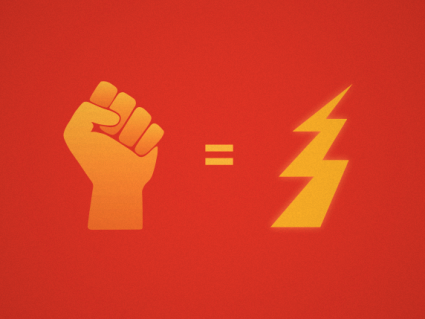Imagine there was something you could add to your car’s engine, so that after driving a hundred miles, you’d end up with more gas in the tank than you started with. Wouldn’t you use it? OK, that product doesn’t exist, and maybe never will. But there is something you can give your team that will have the same effect: interesting work.
Most of us think of interest in our work as a luxury — something that is pleasant but unnecessary, like chocolates on your hotel pillow. But it’s not a luxury, it is, in fact, a powerful motivator. Research shows that finding what you do interesting and believing it has inherent value is likely the single best way to stay motivated despite difficulty, setbacks, and unexpected roadblocks. Additionally, interest in your work doesn’t just keep you going despite fatigue, it actually replenishes your energy.
In their studies, psychologists at California State University gave participants a task to work on that was particularly draining, and then varied whether the nexttask was difficult-but-interesting or relatively easy-but-dull. They found that people who worked on the interesting task put in more effort and performed much better (despite being tired) than those who worked on the boring task – even though it was actually harder than the boring task.
In another study, the researchers found that working on something interesting resulted in better performance on a subsequent task as well. In other words, you don’t just do a better job on Task A because you find Task A interesting – you do a better job on follow-up Task B because you found Task A interesting. The replenished energy flows into whatever you do next.
So how can you make work more interesting for your team, especially when it actually is tedious or uninspiring? The experience of choice. When people feel a sense of autonomy — when they have some say in what they do and how they do it — they find naturally find whatever they are doing to be much more interesting (autonomy, as it happens, increases creativity, too).
And while true autonomy in the workplace can be hard to come by, the feeling of choice can be created fairly easily, using these three tips:
Liberally share your goals.
Liberally share your goals.
First, and most obviously, your team needs to understand why the goal they’ve been assigned has value. Too often, we tell people what they need to do, without taking the time to explain why it’s important, or how it fits into the bigger picture. Don’t assume the why is as obvious to your team as it is to you and be sure to repeat the message often.
Allow your team to dictate their personal processes.
Allow your team to dictate their personal processes.
Allowing your team members to tailor the way they work to their preferences and abilities will also give them heightened sense of control. Some people like to do lots of prep and detailed planning before tackling a project, while others prefer a more in-the-moment, spontaneous process. Some want to check in with you frequently for feedback, while others feel that too much feedback disrupts their flow and feels like micromanaging. Ask your team members about the approach they prefer, and then – if possible – respect that preference. If you can’t give them total free rein, try giving them a choice between two options for how to proceed. If even that is not possible, skip directly to the next tip.
Offer choice, even on the peripheral matters.
Offer choice, even on the peripheral matters.
If you have to assign both the goal and the method for reaching it, try creating the feeling of choice by inviting your team member to make decisions about more peripheral aspects of the task. For instance, if everyone has to attend weekly team meetings to improve communication and collaboration, you can have team members take turns deciding what the topic of the meeting will be each week, or even what kind of lunch will be ordered in. Studies show that these more peripheral decisions can create the feeling of choice, even when the choices aren’t particularly meaningful.
***
Take time to reflect on how you might be able create a greater sense of choice in your own workplace using these methods. You’ll make the work more interesting, and wind up with a team that has a lot more gas in the tank.
—
How about you?
How about you?
How do you replenish your energy when working on something difficult?


No comments:
Post a Comment